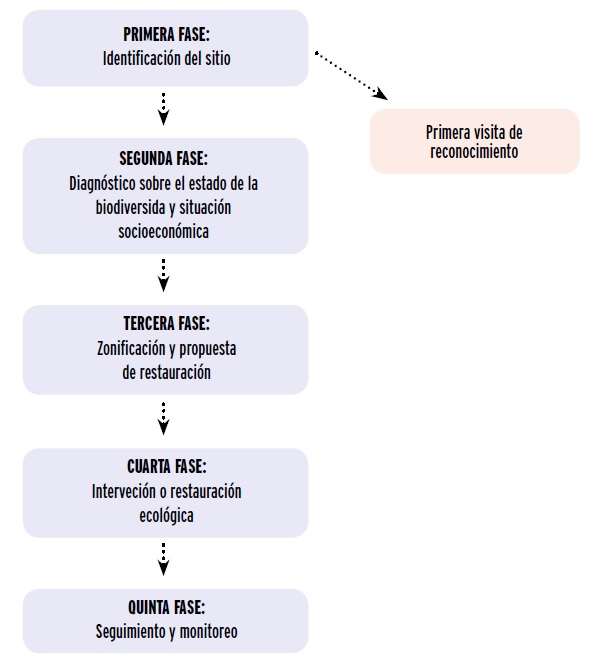Elaborate a Diagnosis on the State of Biodiversity and Socio-Economic Situation.
The objective of this building block is to provide technical teams with the biological parameters necessary to determine the current state of an ecosystem in order to determine the appropriate restoration measures to be implemented in that specific ecosystem.
The diagnosis of the state of the biodiversity is done by documentary review and field visits, where we perform: 1) identification of the site including the composition, structure, and different strata that make up the ecosystem, 2) description of the ecosystem services, 3) floristic composition, 4) diversity of vertebrate and invertebrate fauna groups, 5) presence of invasive species, and 6) identification of threats and degradation factors.
The socio-economic situation is carried out by documentary review and field visits, where the following is done: 1) identification of the current users of the site, 2) description of the productive activities carried out by the users, 3) clarification of the land tenure status of the site, 4) identification of local actors with presence in the territory, 5) identification of the potential local development with ecologically sustainable activities.
